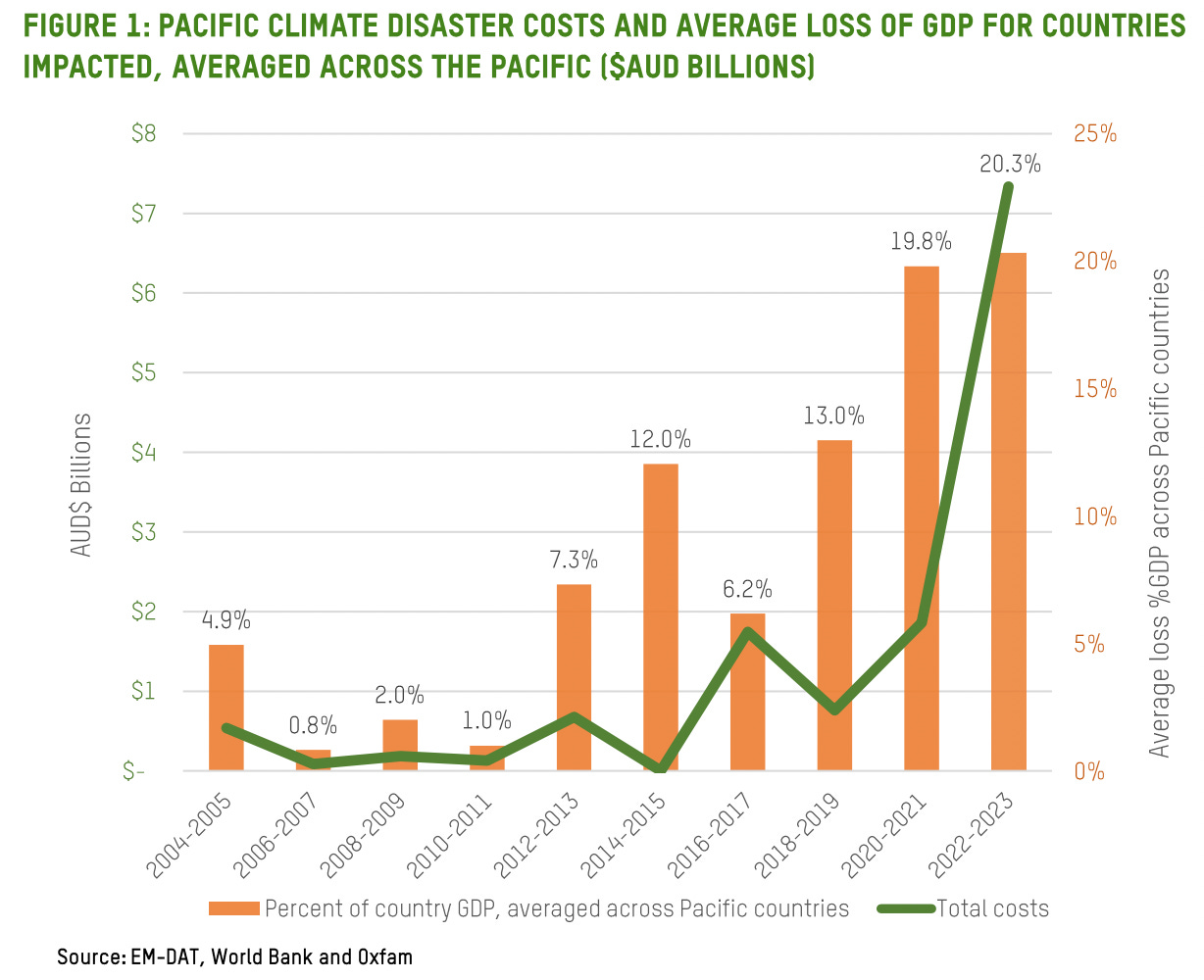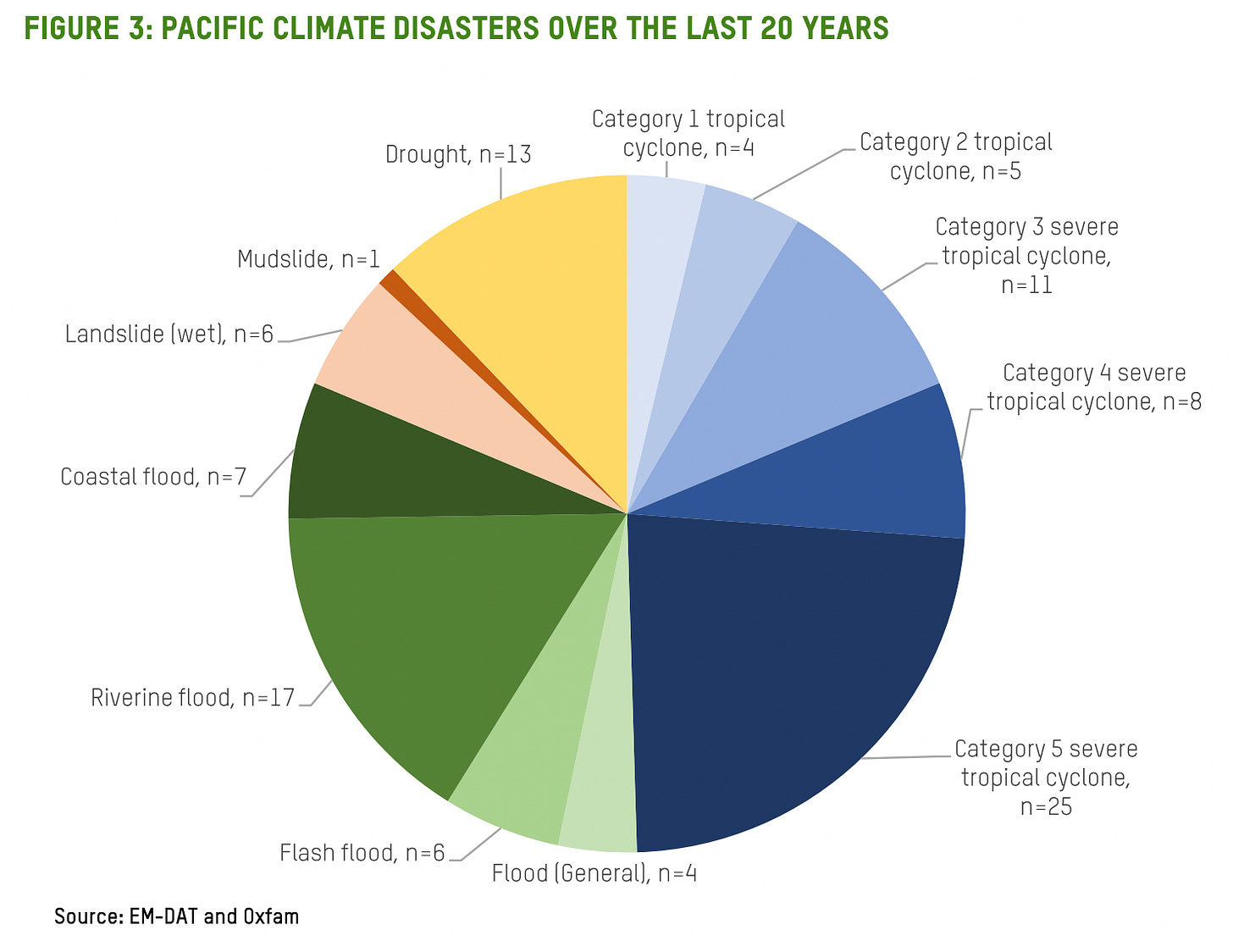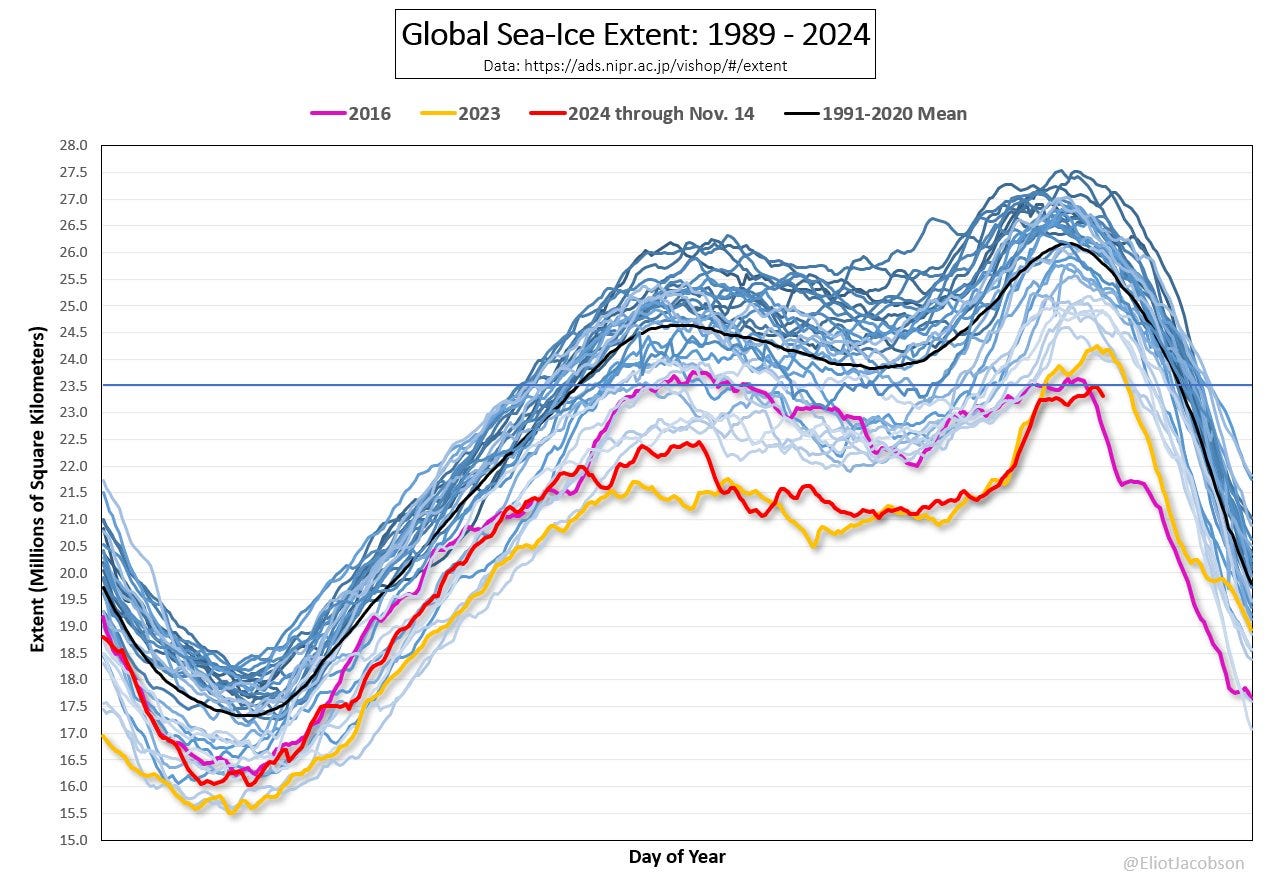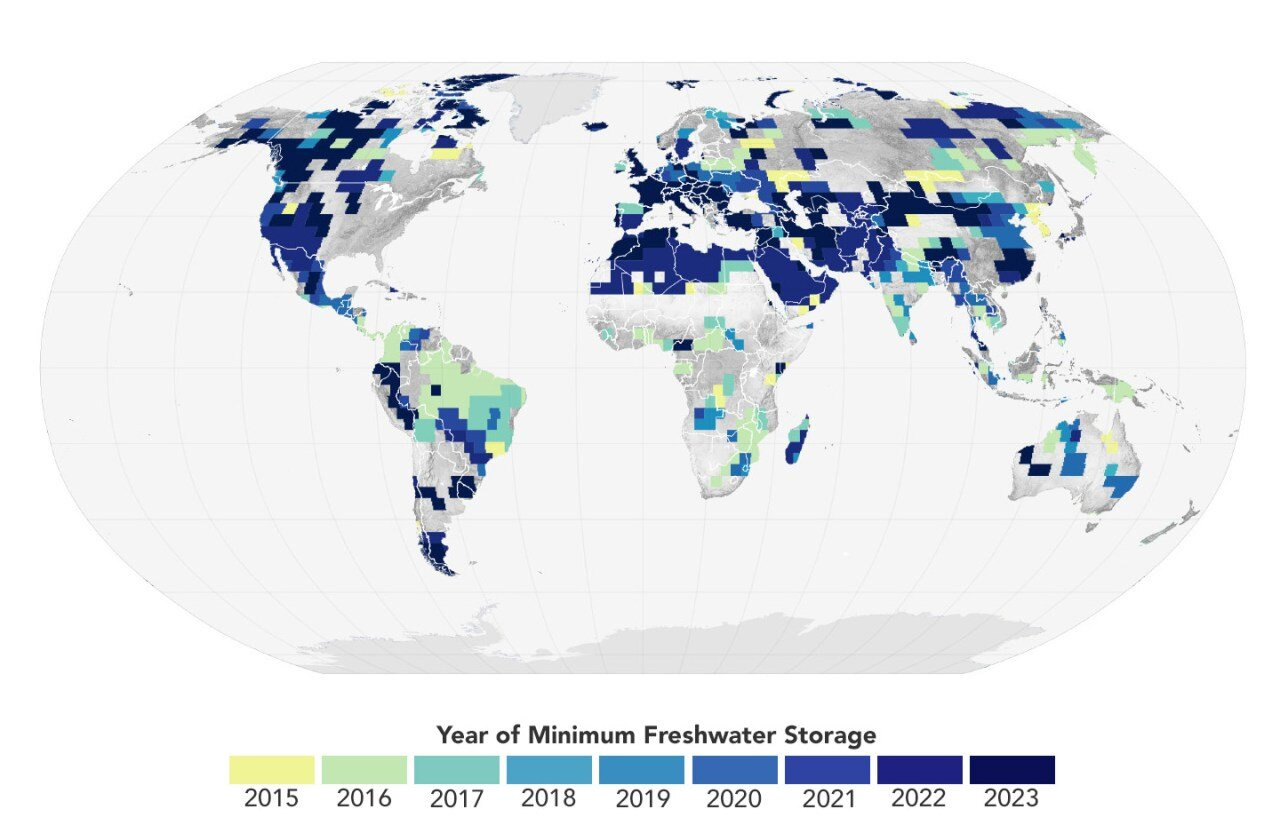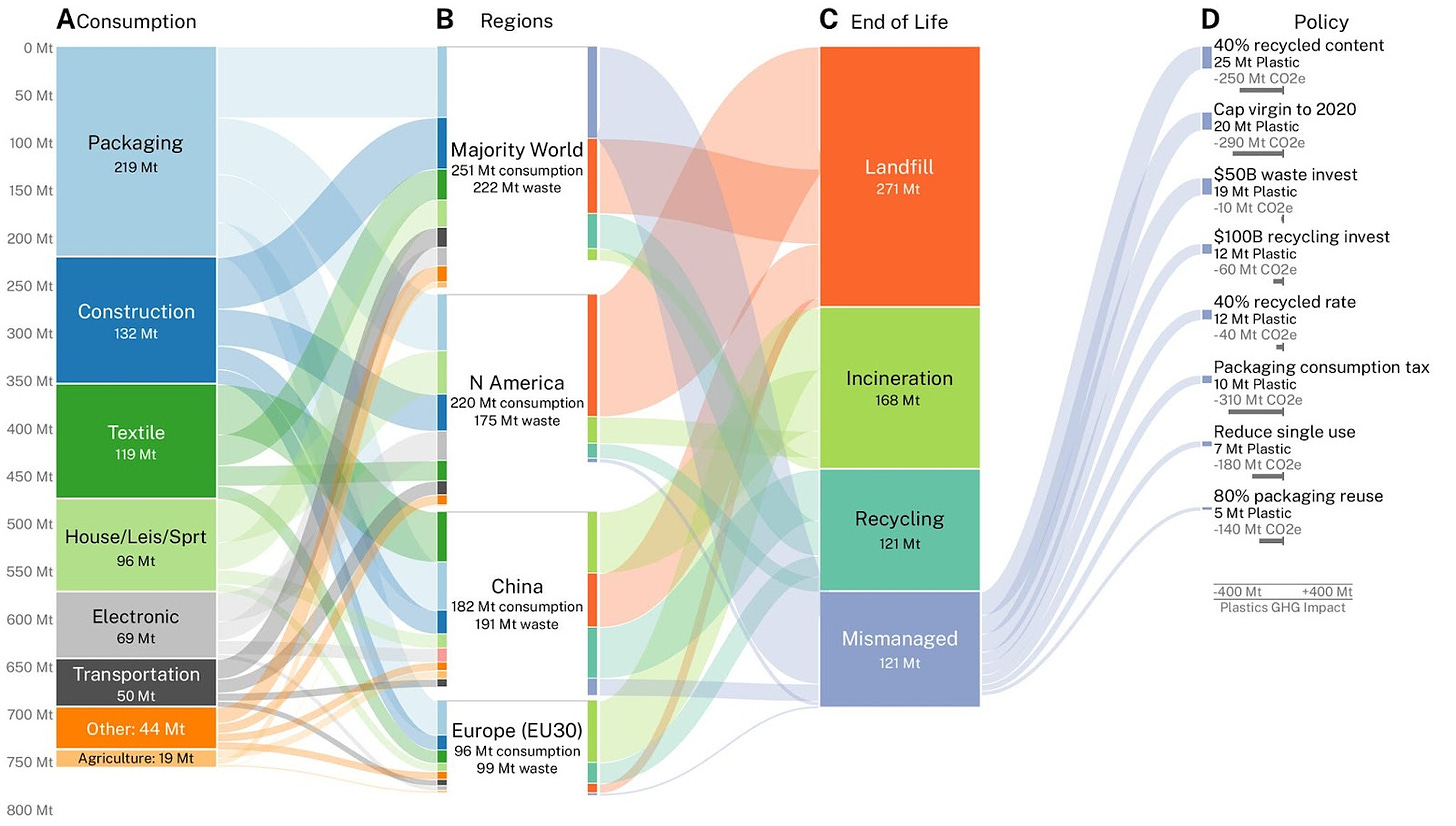Last Week in Collapse: November 10-16, 2024
Sudan’s death count is readjusted much higher, Canada gets its first bird flu case in a human, storms, Droughts, drones, malaria, and modern slavery.
Last Week in Collapse: November 10-16, 2024
This is Last Week in Collapse, a weekly newsletter compiling some of the most important, timely, useful, soul-shattering, ironic, stunning, exhausting, or otherwise must-see/can’t-look-away moments in Collapse.
This is the 151st weekly newsletter. You can find the doomy November 3-9 edition here on Reddit if you missed it last week. Thank you for subscribing to the Substack.
——————————
Typhoon Toraji, the fourth tropical storm to strike the Philippines within a 10-day period, grazed the northern Philippines, with sustained wind speeds of 145 km/h (90 mph). As Oxfam reports, Pacific countries have been experiencing more tropical storms in the last decade, resulting in a loss to GDP which has grown from 3.2% (from 2004-2013) to an average of 14.3% from 2014-2023. But wait; yet another typhoon slammed the Philippines, forcing 650,000+ to evacuate.
“Windthrow” is the phenomenon in which trees are broken or uprooted by very strong winds, roots and all. A recent study in AGU Advances concluded that there was a roughly “4-fold increase in windthrow number and affected area between 1985…and 2020” in the Amazon rainforest. The EU weakened the provisions of a new anti-deforestation bill, and postponed its applicability period by one year. The new draft will allow the import & sale of products linked to deforestation. In Mali, rural people are cutting down the young trees (for firewood) which activists recently planted in reforestation efforts. Only 4% of the proposed “Great Green Wall” has been planted, and even this fragment may not survive long…
A 51-page report by the International Chamber of Commerce determined that extreme weather cost the global economy $2 Trillion USD (in 2023 dollars) from 2014-2023. The report only examined the short-term impacts from about 4,000 weather events, and did not assess the influence from “gradual, longer-term, chronic impacts on agriculture that are unrelated to any single acute event, such as gradual reductions in crop yields due to rising temperatures or slow shifts in ecosystem viability over decades.”
“In 2022 and 2023 alone, economic damages reached $451 billion….The number and severity of climate-related extreme weather events has risen by 83% from 1980–1999 to 2000–2019….a study on flood risk in the US found that roughly 25% of all critical infrastructure, which equates to approximately 36,000 facilities, is currently at risk of becoming inoperable due to flooding….extreme heat and droughts impact solar and thermal power plants, reducing their efficiency and cooling capacity, which can further strain the energy grid….Northern Europe is increasingly experiencing more heavy precipitation, leading to potential flooding, while Southern Europe increasingly faces severe drought and temperature extremes….approximately 500 million hectares of farmland have been abandoned due to drought and desertification….Across Europe alone, the number of heat-attributable deaths stood at almost 110,000 across 2022 and 2023, whereas there were only 13,000 across the preceding eight years from 2014 to 2021….”
Across southern Africa, some 27M people are suffering from malnutrition caused by a years-long Drought—the worst in a century, they say. Argentina’s controversial president pulled the country’s negotiators out of COP29—the latest iteration of a decreasingly relevant conference which, this year, saw a record number of lobbyists come to co-opt the long-sidelined green agenda.
Guangzhou (metro pop: almost 15M) broke its heat records, again, this year. Average global sea surface temperatures remain alarmingly high—and we are still in La Niña. Some believe that earth has not seen such sea temperatures for over 100,000 years. New York state has seen a record number of brush fires in the past three weeks (230+ fires); October was the driest month on record for NYC since records began in 1869…
Iceland broke its November heat record—also a record temperature for the latitude (23.8 °C, or 75 °F). Rainfall alerts continue in Spain; schools remain closed in Seville. New heat records in the Caribbean.
A study in Communications Earth & Environment examined the “mega-heatwave” in South Asia in spring 2022 (at the time the “most severe in the past 64 years”), and concluded that it triggered a runaway snowmelt process and record low snowpack levels across many of the region’s highlands & mountains. Another study in The Cryosphere estimates that worldwide glacier mass will be reduced by 25-54% by the end of this century—greater ice/snow losses than most previous projections. Most of the planet’s glaciers are losing between one and two meters of ice every year. Global sea ice levels remain at alarming levels.
Fish stocks are dropping in the Amazon as the water level sinks from prolonged Drought. A study in Surveys in Geophysics found that earth’s total amount of freshwater began declining considerably in 2014, and never recovered. “The average amount of freshwater stored on land—that includes liquid surface water like lakes and rivers, plus water in aquifers underground—was 290 cubic miles (1,200 cubic km) lower than the average levels from 2002 through 2014…’That's two and a half times the volume of Lake Erie lost.’”
As negotiators plan the contents of a global plastics treaty in South Korea, recommendations are coming in on how to best reduce plastic waste. A journal article in Science lists several possible measures which theoretically “could together reduce mismanaged plastic waste by 91%.”
Keep reading with a 7-day free trial
Subscribe to Last Week in Collapse to keep reading this post and get 7 days of free access to the full post archives.




